Related Research Articles

The Cameroon national football team, also known as the Indomitable Lions, represents Cameroon in men's international football. It is controlled by the Fédération Camerounaise de Football, a member of FIFA and its African confederation CAF.

The DR Congo national football team, recognised by FIFA as Congo DR, represents the Democratic Republic of the Congo in men's international football and it is controlled by the Congolese Association Football Federation. They are nicknamed Les Léopards, meaning The Leopards. The team is a member of FIFA and the Confederation of African Football (CAF).
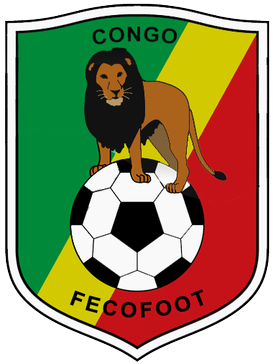
The Congo national football team represents the Republic of the Congo in men's association football and is governed by the Congolese Football Federation. They have never qualified for the World Cup, but did win the Africa Cup of Nations in 1972. They also won the All-Africa Games football tournament in 1965. The team is also a member of both FIFA and the Confederation of African Football (CAF).

The Liberia national football team, nicknamed the Lone Stars, represents Liberia in men's international football and is controlled by the Liberia Football Association. Although the nation produced the 1995 FIFA World Player of the Year, George Weah, its football team has never qualified for the FIFA World Cup and has qualified for the Africa Cup of Nations just twice—in 1996 and 2002. It is a member of both FIFA and the Confederation of African Football (CAF).
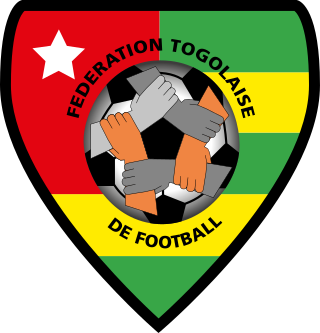
The Togo national football team represents Togo in international football and is controlled by the Togolese Football Federation. The national football team of Togo made their debut in the FIFA World Cup in 2006. Their team bus underwent a fatal attack in Angola prior to the 2010 Africa Cup of Nations. They withdrew and were subsequently banned from the following two tournaments by the Confederation of African Football (CAF). In 2013 for the first time in history, Togo reached the quarter-finals of the Africa Cup of Nations. The team represents both FIFA and the Confederation of African Football (CAF).
The Niger national football team represents Niger in international football through the Nigerien Football Federation, a member of Confederation of African Football (CAF). Niger plays in the colors of the flag of Niger, white, green and orange. Their nickname comes from the Dama gazelle, native to Niger, the Hausa name of which is Meyna or Ménas The Dama appears on their badge in the colors of the national flag.
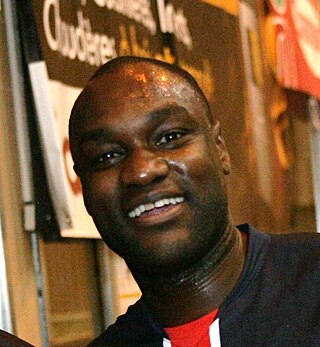
Henri Patrick Mboma Dem is a Cameroonian former professional footballer who played as a striker. He is the fourth all-time top goal-scorer for the Cameroon national team.
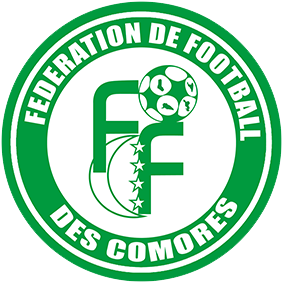
The Comoros national football team represents the Comoros in international football and is controlled by the Comoros Football Federation. It was formed in 1979, joined the Confederation of African Football (CAF) in 2003, and became a FIFA member in 2005. Comoros qualified for their first major tournament in 2021, after their 0–0 draw with Togo assured them of a place in the 2021 Africa Cup of Nations.

Stephen Okechukwu Keshi was a Nigerian football player and manager.

Mohamed Abdel-Kader Coubadja-Touré is a Togolese former professional footballer who played as a forward.

Otto Martin Pfister is a German football manager and one of Germany's most successful coaching exports, voted Africa's Manager of the Year in 1992. He is formerly the manager of the Afghanistan national team.

Kossi Agassa is a French-Togolese former professional footballer who played as a goalkeeper. He spent most of his club career in France. Between 1999 and 2017, he made 74 FIFA-official appearances for the Togo national team.

Daré Nibombé is a Togolese football manager and former player who is the head coach of the Togo national team. He played as a centre-back.
Komi Massamasso Tchangai was a Togolese professional footballer who played as a defender. He appeared with the Togo national team in 37 international matches, scoring five times, between 1996 and 2008.

Moustapha Salifou is a Togolese professional footballer who plays mostly as a midfielder for German Bayernliga club Türkspor Augsburg. He has represented the Togo national team at the 2006 FIFA World Cup. He spent four years at English Premier League club Aston Villa, the rest of his professional career has been spent at lower levels of the German, French and Swiss league systems.
Yao Séyram Junior Sènaya is a Togolese former football player who played as a striker or a midfielder. He is also the younger brother of Yao Mawuko Sènaya.
Frederick Osam-Duodu was a Ghanaian coach and a FIFA Instructor. Osam Duodu served as Ghana national football team.

Paulo Jorge Rebelo Duarte is a Portuguese retired footballer who played as a central defender, currently a manager.
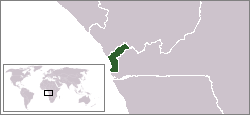
A terrorist attack occurred on 8 January 2010 as the Togo national football team traveled through the Angolan province of Cabinda on the way to the 2010 Africa Cup of Nations tournament, two days before it began in Angola. A little-known offshoot of the Front for the Liberation of the Enclave of Cabinda (FLEC), a group promoting independence for the province of Cabinda, known as the Front for the Liberation of the Enclave of Cabinda – Military Position (FLEC-PM), claimed responsibility for the attack. Bus driver Mário Adjoua, the team's assistant manager Améleté Abalo, and media officer Stanislas Ocloo were killed, with several others injured. Secretary General of the FLEC-PM Rodrigues Mingas, currently exiled in France, claimed the attack was not aimed at the Togolese players but at the Angolan forces at the head of the convoy. Authorities reported two suspects were detained in connection with the attacks.
Koffi Olympio is a Togolese former professional footballer who played as a defender. He played in eight matches for the Togo national team from 2000 to 2002. He was also named in Togo's squad for the 2002 African Cup of Nations tournament.
References
- ↑ "Safiou Salifou". National Football Teams. Retrieved 10 May 2021.
- ↑ "African Nations Cup 2002". RSSSF. Retrieved 10 May 2021.
